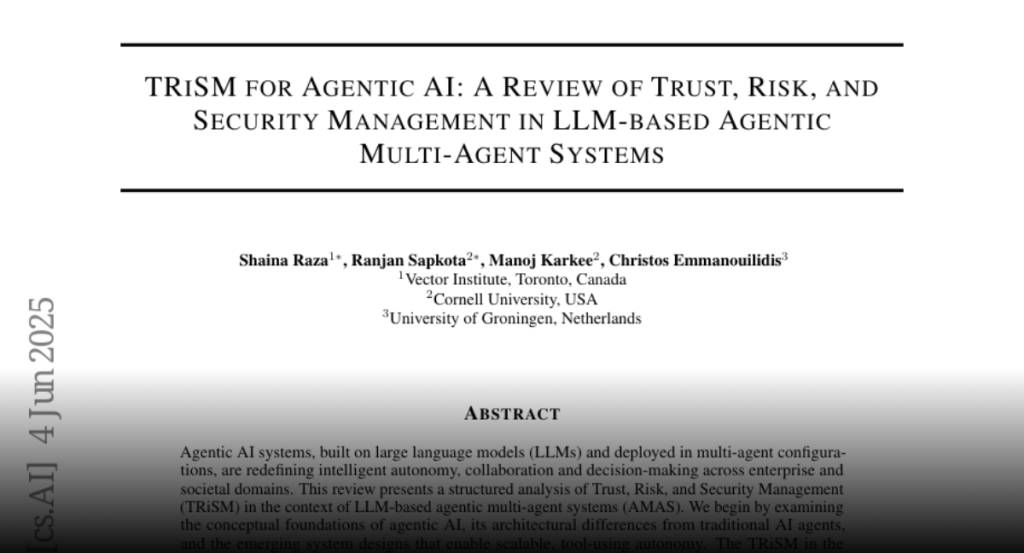Agentic AI systems, built on large language models (LLMs) and deployed in multi-agent configurations, are redefining intelligent autonomy, collaboration and decision-making across enterprise and societal domains. This review presents a structured analysis of Trust, Risk, and Security Management (TRiSM) in the context of LLM-based agentic multi-agent systems (AMAS). We begin by examining the conceptual foundations of agentic AI, its architectural differences from traditional AI agents, and the emerging system designs that enable scalable, tool-using autonomy. The TRiSM in the agentic AI framework is then detailed through four pillars governance, explainability, ModelOps, and privacy/security each contextualized for agentic LLMs. We identify unique threat vectors and introduce a comprehensive risk taxonomy for the agentic AI applications, supported by case studies illustrating real-world vulnerabilities. Furthermore, the paper also surveys trust-building mechanisms, transparency and oversight techniques, and state-of-the-art explainability strategies in distributed LLM agent systems. Additionally, metrics for evaluating trust, interpretability, and human-centered performance are reviewed alongside open benchmarking challenges. Security and privacy are addressed through encryption, adversarial defense, and compliance with evolving AI regulations. The paper concludes with a roadmap for responsible agentic AI, proposing research directions to align emerging multi-agent systems with robust TRiSM principles for safe, accountable, and transparent deployment.

